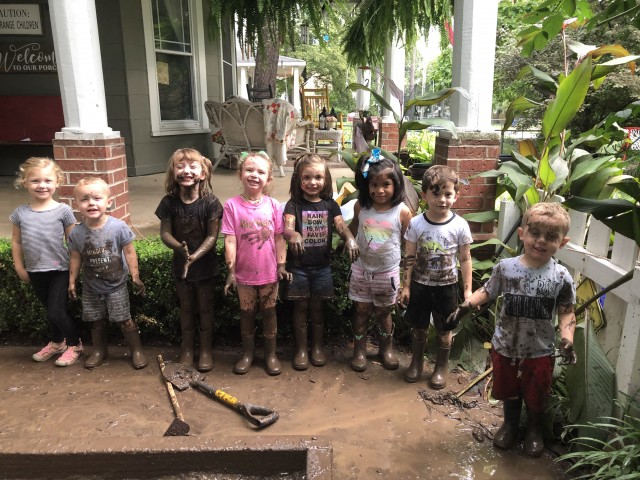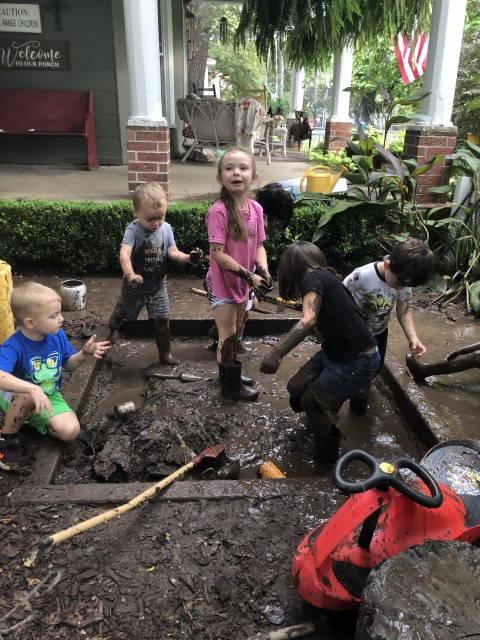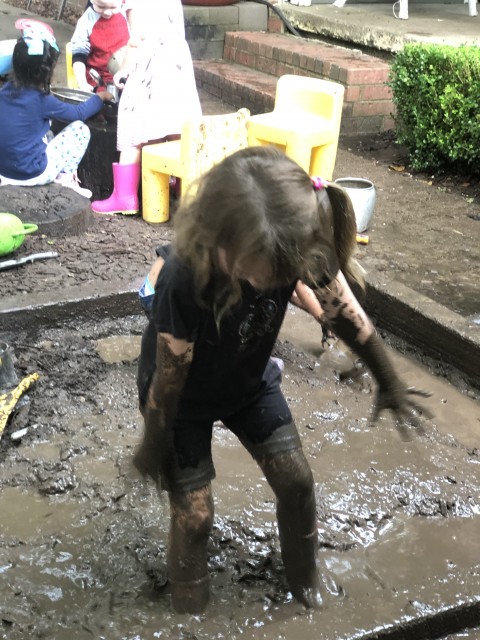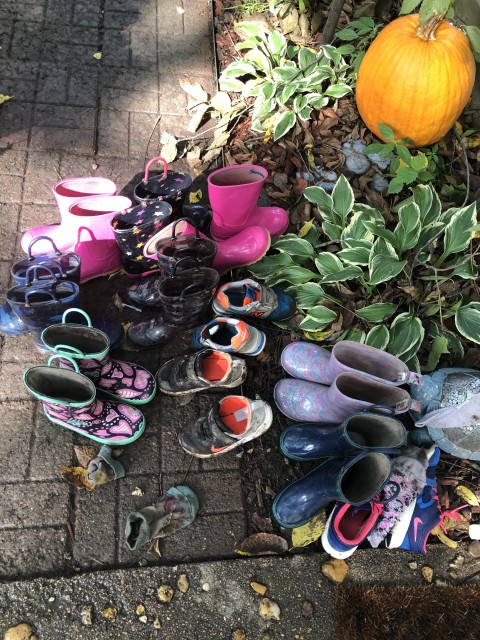The Value of Mud Play
The Value of Mud Play
So before I go into the academic/social advantages of allowing your children to play in the mud- let’s just talk about joy.
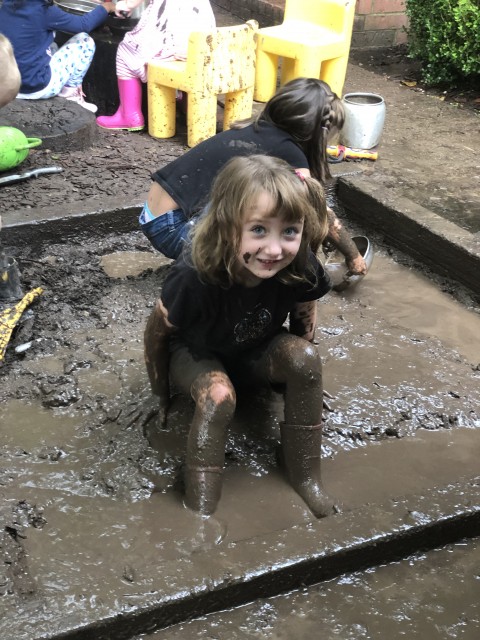
JOY !!
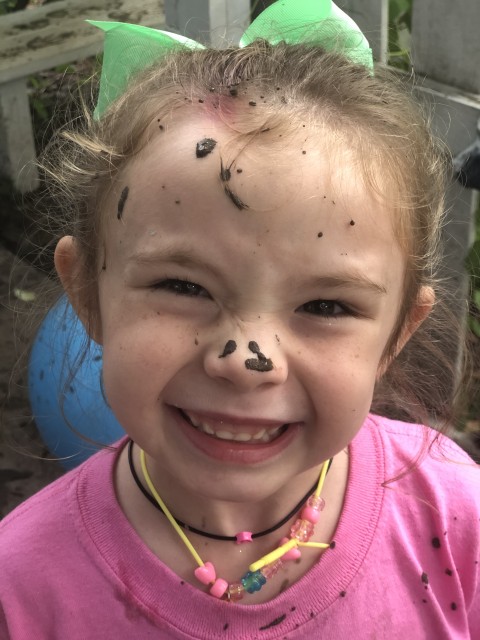
Look at the JOY on their faces. ❤️.
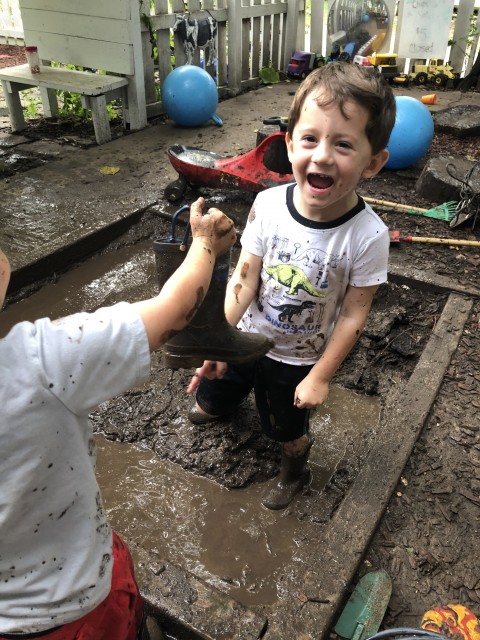
From a community playthings article –
Scientists have now confirmed something that children have always instinctively known; playing in mud is a joyful experience. Recent research has shown that dirt contains microscopic bacteria called Mycobacterium Vaccae which stimulates the immune system and increases the levels of serotonin in our brains, an endorphin that soothes, calms, and helps us to relax. Scientists say regular exposure to the bacteria may help reduce a child’s vulnerability to depression. In short, playing in mud makes you happier!
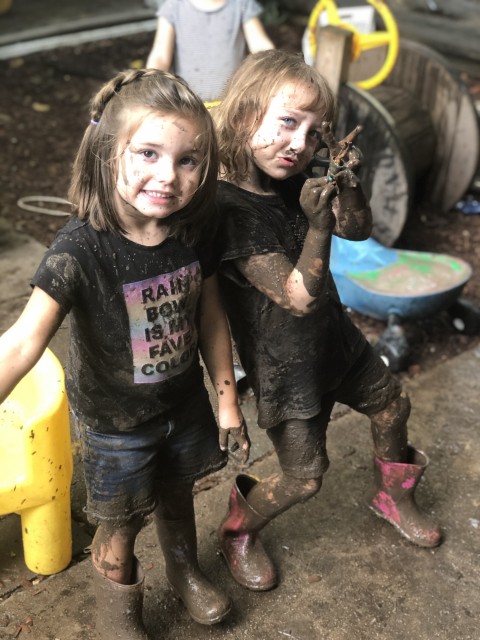
Playing in mud can make you healthier too. Science shows that today’s sanitized world is actually contributing to increased levels of childhood allergies and asthma. Exposure to dirt and germs works to prime a child’s immune system to prevent allergies. Yes, it’s actually healthy for children to get muddy!
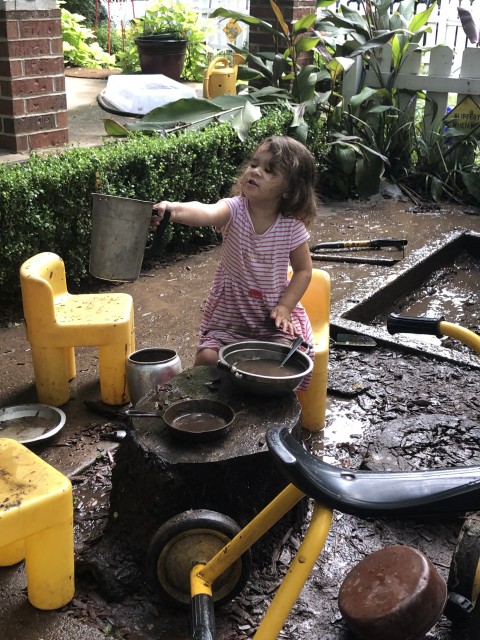
Mud is also an excellent medium for learning. The same release of serotonin that occurs when playing in Mycobacterium Vaccae dirt has also been shown to improve cognitive function. And the rich, engaging sensory play children partake in while playing with mud allows them to express their creativity while enhancing their fine motor skills. Children practice social skills such as cooperation, negotiation, communication, and sharing as they work together. Emergent math and science skills are practiced as children make before and after comparisons, solve problems, test theories, and measure and count ingredients for their mud pies.
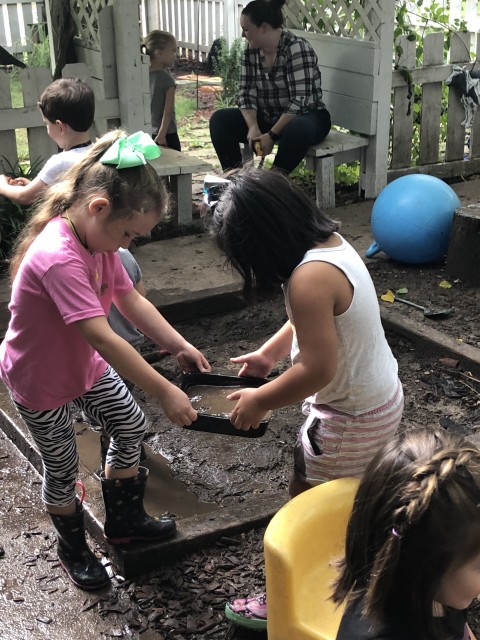
This is the scientific process in action! Mud is a wonderful art medium, it is in ample supply, can be easily molded to create endless sculptures, and responds differently than clay or play dough. The open-ended nature of mud encourages creative thinking and allows children to freely create without fear of making mistakes. This also contributes to a child’s sense of self, helping to build a strong inner sense of competency.
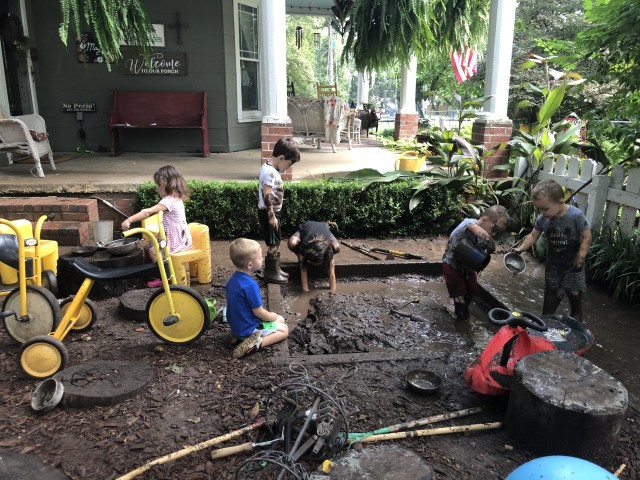
Mud play is inclusive of all children. It allows children to play at their own developmental level. Mud is an open ended material that meets the diverse needs and interests of different children. Younger or less skilled children might focus on the sensory experience whereas older children may have more specific goals in mind for their mud play. Some children may thoroughly enjoy the sensation of mud between their toes while others are only comfortable poking a finger into the mud. Allow children to explore the mud at their own comfort level. With mud, there is something for everyone and there are no wrong answers.
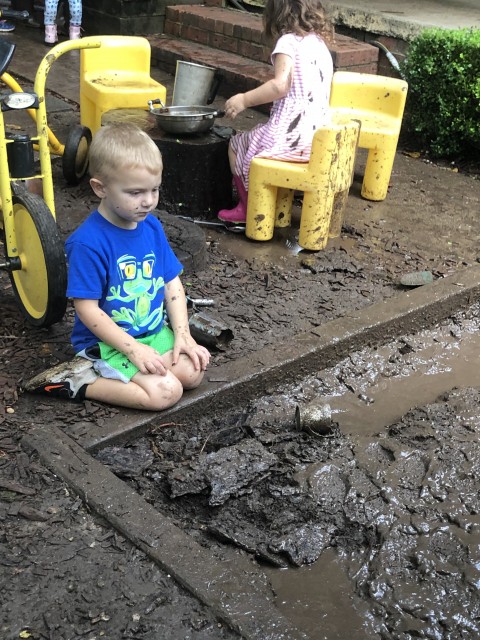
Playing in the mud inspires children to feel a connection to nature and develop an appreciation for the environment. Many children today have limited opportunities to play outdoors and it is difficult to care about the environment if you have not had the chance to spend time in nature. By providing time outdoors and the chance for muddy, messy play, you facilitate a love of the earth.
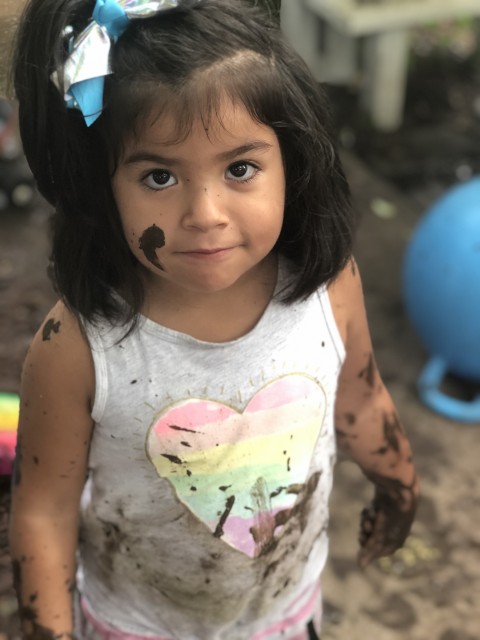
But maybe the greatest benefit of mud play is the memories being created by the children. Mud play and the wonder and joy associated with it are the stuff that fabulous childhood memories are made of!
